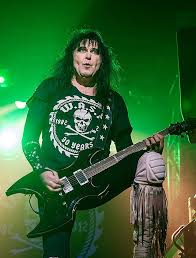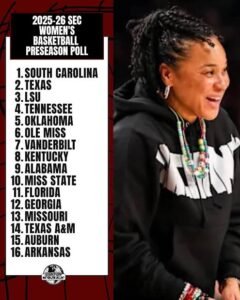Blackie Lawless Announces Resignation and Departure from W.A.S.P. After More Than Four Decades…

Blackie Lawless Announces Resignation and Departure from W.A.S.P. After More Than Four Decades
In a move that has shocked the heavy metal world, Blackie Lawless, the iconic founder, frontman, and bassist-turned-guitarist of W.A.S.P., has officially announced his resignation and departure from the band he co-founded in 1982. After more than 40 years at the helm of one of metal’s most controversial and influential acts, Lawless is stepping away from the group, bringing an era to a definitive close.
In a heartfelt statement posted on the band’s official website and social media channels this morning, Lawless, born Steven Edward Duren, cited a combination of health concerns, personal reflection, and a desire to “close the book with dignity” as the reasons for his departure.
> “It’s with a heavy but peaceful heart that I announce my departure from W.A.S.P.,” Lawless wrote. “This band has been my life’s work, my passion, and a force that has carried me across every continent. But the time has come to step away. My body is no longer what it used to be, and spiritually, I feel I’ve said what I needed to say through this music.”
The End of an Era
For fans of W.A.S.P., the news hits hard. The band rose to prominence in the early 1980s amidst the explosion of glam and shock metal in Los Angeles, alongside the likes of Mötley Crüe, Ratt, and Quiet Riot. But W.A.S.P. quickly set itself apart with its outrageous stage theatrics, aggressive sound, and Lawless’ theatrical, menacing persona.
The band’s 1984 self-titled debut album—featuring the controversial single “Animal (F**k Like a Beast)”—established W.A.S.P. as one of the most defiant and dangerous acts of the decade. Over the years, the band evolved musically and thematically, exploring darker and more conceptual terrain in albums like The Headless Children (1989) and the critically acclaimed rock opera The Crimson Idol (1992).
Lawless, who initially served as the band’s bassist before moving to rhythm guitar, was more than a musician; he was W.A.S.P.’s creative engine, penning most of the band’s material and crafting the visual and lyrical identity that fueled its infamy. His snarling voice, haunting lyrics, and unwavering stance against the commercial dilution of heavy metal earned him both admiration and controversy.
Health Challenges and Farewell Signals
While Lawless has never shied away from personal struggle in his music, recent years have seen him become more candid about his physical limitations. In 2023, during the band’s 40th Anniversary Tour, he performed many shows seated, citing chronic back issues stemming from years of onstage wear and tear.
Speculation about his retirement began circulating then, especially after interviews in which he expressed fatigue from touring and increasing frustration with the music industry’s direction. Still, most fans were unprepared for this week’s announcement.
> “The last few years have given me a lot of time to think, especially during the pandemic and after,” Lawless explained in his statement. “We all reach a point where we must decide what legacy we want to leave behind. I feel this is the right time.”
Legacy of the Metal Outlaw
Blackie Lawless leaves behind a legacy that few in the heavy metal world can rival. A rebellious visionary, he helped define what shock rock and theatrical metal could look and sound like. While early critics dismissed W.A.S.P. as merely a provocateur band reliant on blood-soaked gimmicks and explicit lyrics, time has revealed the deeper emotional and political threads running through Lawless’ work.
The Headless Children addressed war, addiction, and corruption. The Crimson Idol told the tragic tale of a young musician consumed by fame and isolation—a storyline that resonated as autobiographical for many fans.
“He’s always been more than the leather and makeup,” said Eddie Trunk, rock historian and radio host. “Blackie was a storyteller, a poet in his own right. He brought depth to metal at a time when it wasn’t always appreciated.”
Fellow musicians echoed that sentiment. Alice Cooper, often cited as a theatrical rock pioneer, wrote on X (formerly Twitter), “Blackie carried the torch for those of us who believed that rock and roll should be dangerous, honest, and larger than life. Salute to a true original.”
What Comes Next?
While Lawless has made it clear that his days with W.A.S.P. are over, he has not ruled out creative projects entirely. In his announcement, he hinted at a possible memoir and a return to writing—perhaps even outside the realm of music.
> “I’ve lived a life most people can’t imagine. There are stories to be told, and I’m not done speaking. I just won’t be doing it with a mic in my hand on stage.”
As for the band’s future, no official word has been given on whether W.A.S.P. will continue without Lawless. Given that he has long been the band’s primary songwriter, vocalist, and visual architect, many fans suspect the group may dissolve entirely. However, longtime members like bassist Mike Duda and guitarist Doug Blair may choose to carry the torch forward in some form.
The final W.A.S.P. performance featuring Lawless took place on April 27, 2025, in Berlin, Germany—a fittingly dramatic and emotional show in a city known for embracing heavy metal. Fans have since taken to social media, sharing memories, photos, and tributes under hashtags like #BlackieForever and #ThankYouBlackie.
The Final Word
Blackie Lawless departs not just from a band but from a movement he helped shape. In an era when image often triumphed over substance, Lawless fused both, creating a body of work that was as theatrical as it was thought-provoking. Whether raging against political systems or exploring the pain of abandonment and loss, his voice became an outlet for countless fans who felt marginalized or misunderstood.
His departure marks the end of one of heavy metal’s longest and most storied chapters, but the fire he ignited will not be extinguished.
As Lawless himself wrote in The Crimson Idol:
> “I’m a wild child, come and love me / I want you.”
For millions of fans, that call was answered long ago—and the echo will linger for years to come.
—
Byline: Michael Grant – Senior Music Correspondent, HeavyNation Weekly
Photo Credit: Getty Images / W.A.S.P. Archives
—
Let me know if you’d like a shorter version, a press release-style format, or a version tailored for fans or industry professionals.



